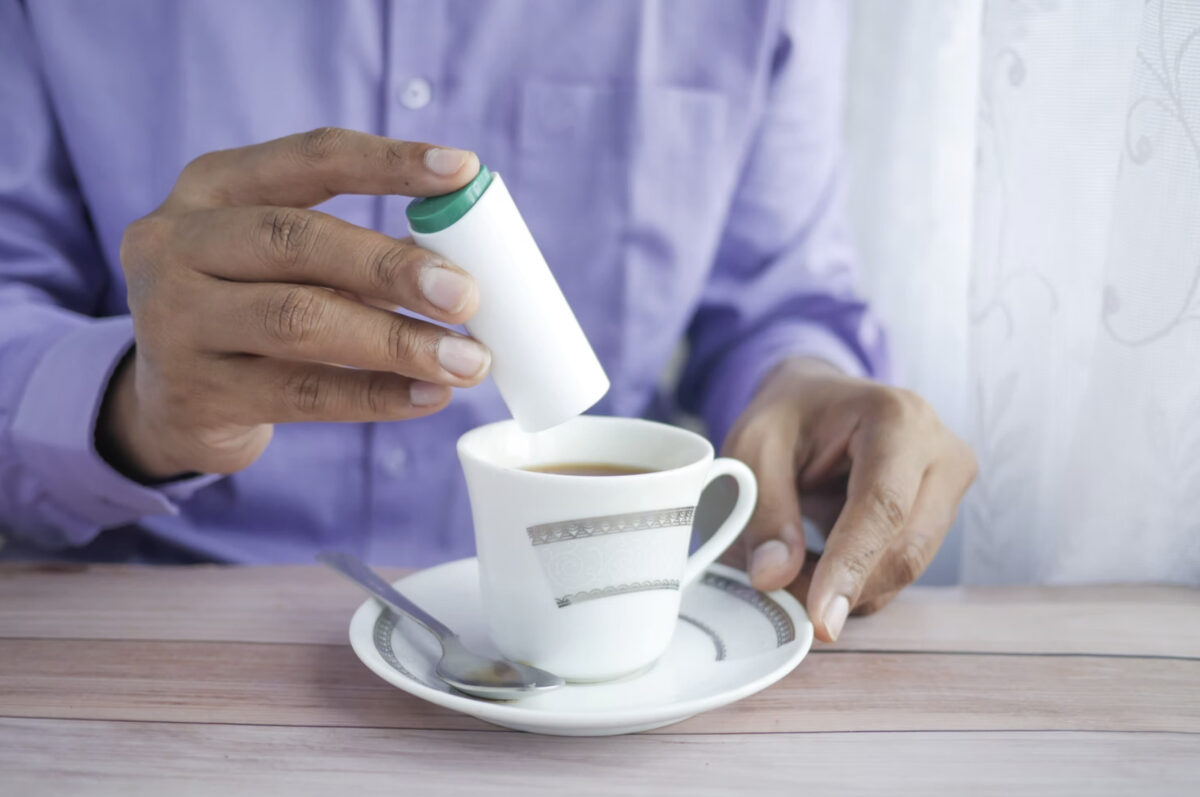By Tamara Kung, ND
Sugar is bad, so artificial sweeteners without all the extra calories must be good, right??
Let’s look at the facts to improve our understanding of this critical area of nutrition. It’s important to first understand how insulin works and how added sweeteners affect it.
Insulin is your growth and storage hormone (“Hormone of Abundance”) and it allows your body to either use sugar (glucose) for energy, or to store it (fat) for when our intake of energy is low. Our body isn’t good at multitasking, so when it’s storing, it’s NOT burning. This is imbalance number one and why weight gain happens when we have too much fuel of certain types.
Insulin is triggered most by processed foods because they contain added sugars, artificial sweeteners, and simple carbohydrates like white flour. A diet rich in processed foods can lead to Insulin resistance which occurs when our cells no longer respond to overly repetitive signalling of insulin. This means cells won’t open their doors to let blood sugar (energy) in, thereby keeping our blood sugars elevated.
Picture This:
- Imagine insulin to be the kids who ring your doorbell to trick or treat. If that doorbell keeps ringing after Halloween, that will get annoying, and you will eventually stop opening the door.
- Your cells do the same. If insulin is always around, ringing your cell’s door (ie. eating sugar/artificially sweetened foods or drinks regularly), your cells will ignore it and become insulin resistant.
- In response, your body will increase the amount of insulin (more doorbell rings), and increased insulin drives the development of diabetes, and other diseases related to weight gain.
When people are in this state, the first step is to take a break from insulin-triggering foods and curb the cravings so our cells can become more sensitive to insulin. Less insulin means less time storing fat and promoting energy production and growth. Less insulin means more time burning fat.
Now that you have the basics of insulin, let’s look at artificial sweeteners specifically.
When we consume artificial sweeteners, insulin still goes up despite not having any actual sugar calories coming in. This is because our bodies are smart, and our taste buds sense sweetness which signals our gut to prepare for sugar. The insulin spike from artificial sweeteners causes our body to store blood sugar in our cells, and this can lead to low blood sugar. Low blood sugar can, in turn, make us feel weak, hungry, or even hangry. That’s why people who consume diet sweeteners can eat more, and feel less satiated and thus, overconsume.
The studies on artificial sweeteners are starting to come in due to the increased use and interest in their long-term effects. Here are two incredible examples.
One study divided volunteers into four groups who had the same diet for over six months, except for the following differences:
Group 1 = A litre of sugared soda a day
Group 2 = A litre of diet soda per day
Group 3 = A litre of milk per day
Group 4 = A litre of water per day
- The soda group gained 22 lbs, the diet soda group gained 3.5 lbs, the milk group stayed the same, the water group lost 4.5 lbs.
A gain of 3.5lbs is better than 22lbs, but why did they still gain weight without the extra calories? And why did the milk group not gain any weight despite having the same number of calories as sugary soda? It has to do with insulin, meaning diet sweeteners still cause an insulin release, while the lactose and fat in milk, didn’t. In a follow-up study, they took diet soda drinkers and switched them to only water, and they lost another 6 lbs. Both diet soda and water contain no sugar, so why did their weight change? You guessed it, insulin! The sweet taste alone can stimulate appetite and insulin release which drives fat storage.
The second study was long-term and followed 918 women for 7 years to better understand the regular consumption of artificially sweetened beverages (ASB). The study found that artificially sweetened beverages during pregnancy can affect the birth size and increase the risk that a child will be overweight/ obese by seven years of age.
- Specifically, there was almost a two-fold increase of overweight/obese children seven years later in the mothers who drank ASB daily while pregnant (compared to mothers who never did).
- The study also looked at the difference when mothers substituted their regular sodas for diet sodas (with the hope of making a healthier choice), but the results didn’t show any significant reduction in risk in childhood overweight/ obesity.
- There was a reduced risk in mothers who substituted sugar sweetened beverages for water!
Diet sweeteners also change the composition of the microbiome in your gut, shifting the balance from good to bad bacteria. Studies have shown that this leads to glucose intolerance and may contribute to leaky gut, inflammation, and increased deposition of visceral fat, driving metabolic syndrome. The research is starting to come out, but many studies still need to be done on this topic so stay tuned!
The bottom line is, the impact of hyper-sweet, sugary or artificially sweetened food is negative for our health. This is especially true for our children because their taste buds become groomed to crave intensely sweet foods. No longer will a juicy peach, or flavourful strawberries satisfy them as their taste buds will be too ‘numb’ if exposed to hyper-sweet tastes too often. For adults, it’s not too late! Our taste buds can change completely in as little as 10 days if we let them. Water is your ultimate beverage, and fruit, nature’s candy, has your back since they are packed with a bounty of antioxidants and fibre to nourish and give you health in return for a sweet treat.
More research is needed, but the early message is clear. Trust real food and you will avoid these insulin high jacking sweetener issues.
Health Reports: Added, free and total sugar content and consumption of foods and beverages in Canada. (2020). Retrieved from https://www150.statcan.gc.ca/n1/pub/82-003-x/2020010/article/00002-eng.htm
Harvard Health Publishing. Artificial sweeteners. sugar free, but at what cost. Retrieved from
https://www.health.harvard.edu/blog/artificial-sweeteners-sugar-free-but-at-what-cost-201207165030
Yang, Q. (2010). Gain weight by ‘going diet?’ Artificial sweeteners and the neurobiology of sugar cravings: Neuroscience, Yale Journal of Biology and Medicine 83(2): 101-8. Retrieved from: https://www.ncbi.nlm.nih.gov/
Purdue University. The study of soft drinks including diet sodas contributes to increased sugar intake and calorie consumption in children. Retrieved from:
Ruiz-Ojeda FJ, Plaza-Díaz J, Sáez-Lara MJ, Gil A. Effects of Sweeteners on the Gut Microbiota: A Review of Experimental Studies and Clinical Trials [published correction appears in Adv Nutr. 2020 Mar 1;11(2):468]. Adv Nutr. 2019;10(suppl_1):S31-S48. doi:10.1093/advances/nmy037. Retrieved from https://www.ncbi.nlm.nih.gov/
Tandel KR. Sugar substitutes: Health controversy over perceived benefits. J Pharmacol Pharmacother. 2011;2(4):236-243. doi:10.4103/0976-500X.85936. Retrieved from: https://www.ncbi.nlm.nih.gov/
Zhu Y, Olsen SF, Mendola P, et al. Maternal consumption of artificially sweetened beverages during pregnancy, and offspring growth through 7 years of age: a prospective cohort study. Int J Epidemiol. 2017;46(5):1499-1508. doi:10.1093/ije/dyx095. Retrieved from https://www.ncbi.nlm.nih.gov/


